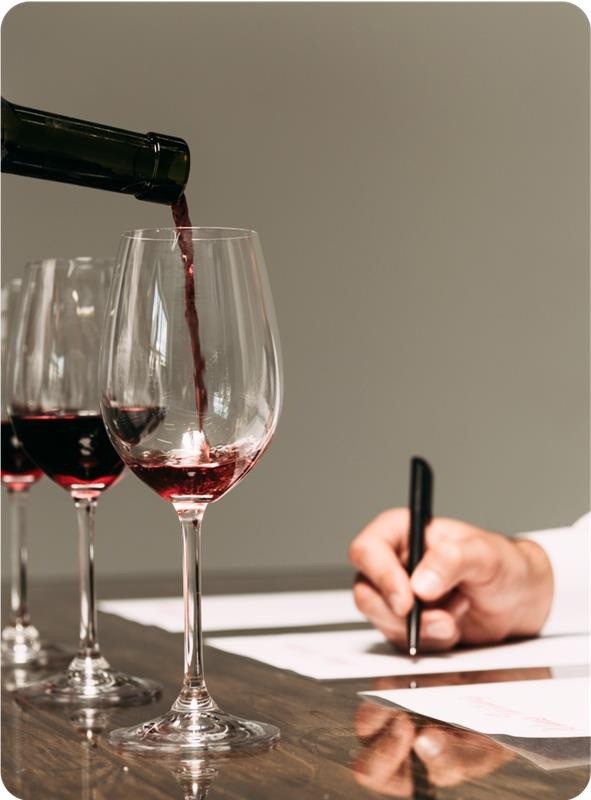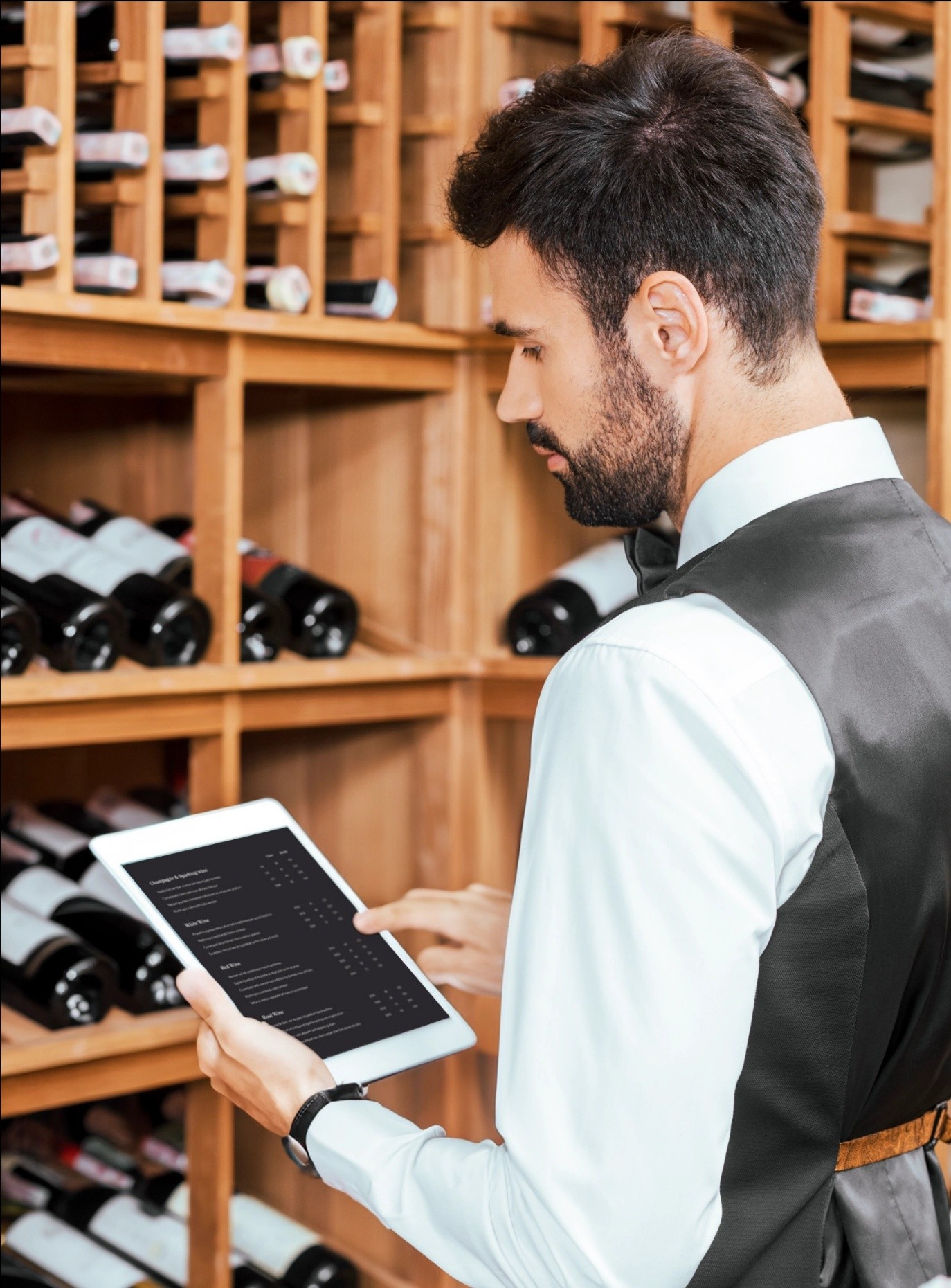
Streamlining Tasting Room Operations: How Winery-Specific POS Software Enhances the Visitor Experience
September 13, 2024
Winery Management
UNDER THIS BLOG
The centrepiece of a winery's tourist experience is the tasting room, which provides a special chance for patrons to interact with the brand, try out goods, and make purchases. The effectiveness of tasting room operations has grown in importance as wineries continue to prioritise providing guests with unforgettable experiences. Point-of-sale (POS) software tailored specifically for wineries is made to meet the demands of tasting rooms, enhancing the overall guest experience and streamlining business processes.
POS Software's function in tasting rooms:
A normal retail setting is not the same as a winery tasting room. Consumers are engaging in experiences, which frequently include trying out various wines, becoming members of wine clubs, and going to events, in addition to making purchases. Winery-specific point-of-sale (POS) software offers customised solutions to manage these intricate interactions, ensuring a smooth experience from sampling to payment.
The Main Benefits Of POS Software Designed For Wineries:
1. Integration of Wine Clubs:
Integration with a winery's wine club is one of the main advantages of POS software. Long-term client relationships can be cultivated through wine clubs, and membership administration can be made easier with the use of POS systems. Employees at the winery can quickly register new members, handle payments, and keep track of perks like free samples and discounts. The process is more effective because to this integration, which decreases wait times and raises client satisfaction.
2. Inventory Control:
Inventory control in a winery is more difficult than stock control at a store. Small-batch production and seasonal fluctuations in inventory are common issues faced by wineries. Real-time inventory management is made possible by POS software, ensuring that employees are aware of exactly what is offered for tastings and purchases. This keeps sales from going overboard and guarantees that popular items are always available, saving customers from being disappointed.
3. Customer Relationship Management (CRM):
CRM features are often integrated into winery-optimized POS solutions, assisting them in establishing and preserving client connections. Wineries are able to provide return consumers with individualised experiences by keeping track of visitor preferences, purchases, and tasting notes. Additionally, you may utilise this information to invite clients to special events, send them tailored marketing emails, or make recommendations just for them when they return. This customised POS software helps the customers to get special discounts as per their past purchases which might not be seen in a normal POS Software.
4. Quickness and Effectiveness:
Tasting rooms can get busy during certain times. A POS platform facilitates expedited checkout by allowing employees to promptly process orders, add discounts, and accept several payment methods. The more time guests have to enjoy their sampling experience instead of waiting in queue, the faster the checkout procedure may be completed.
5. Reservation and Event Administration:
Events like wine tastings, private parties, and vineyard tours are frequently held at wineries. Reservations, ticket sales, and event check-ins can be easily managed using a point-of-sale customized for wineries. Wineries benefit from this connectivity in a number of ways, including improved organisation and guest pleasure through the management of visitor flow, accurate headcounts, and seamless event experiences.
6. Mobile POS
POS systems frequently come with mobile alternatives that let employees go about the tasting area or vineyard without restriction. By allowing employees to take orders from customers directly during tastings, handle payments immediately, and even upsell customers on wine club memberships or extra bottles, this flexibility can enhance customer service.
It also helps to enhance visitor experience. They help the same with the following features:
- Personalization:
POS System that are developed to facilitate wineries, collects data that makes visitor experiences more tailored. Personalised greetings, recommendations for their preferred wines, and product introductions according to their past tastes can all be extended to loyal consumers. Customers feel valued and have a better overall experience when they receive this level of personalisation.
- Smooth transactions:
Point- of- Sale (POS) systems reduce disruptions during the sampling experience by optimising the checkout process. Orders may be placed, appointments can be made, and memberships in the wine club or bottle club can be completed quickly and easily. Because of its efficiency, visitors can enjoy their visit for longer and spend less time waiting in queue.
- Opportunities for Upselling:
Software designed specifically for wineries aids employees in seeing upselling possibilities. Offering a discount on a complete case of wine or recommending a wine club membership are just two examples of how the system's data-driven insights can boost sales without coming across as aggressive to the client.
- Increased Employee Productivity:
Employees working in the tasting room of a winery represent the company. Point-of-Sale (POS) systems free up staff members' time to concentrate on delivering first-rate customer care. Employees have more time to interact with visitors and create lasting experiences when they can easily handle transactions, track inventory, and manage wine club subscriptions.
Discover More

December 4, 2025
Winery Management
Smart Growth with Square Integration Winery Software
The winery of the future will not be defined by stainless steel alone. It will be shaped by clarity, mobility, and systems that intuitively connect every decision from vineyard blocks to point-of-sale interactions. I have seen how this shift looks in practice, and it begins the moment everything moves under one intelligent digital roof.

October 17, 2025
Winery Management
Enhanced Operations with Cloud-Based Winery Software
Efficiency in winemaking today is no longer defined by the size of a vineyard or the scale of production, but by how intelligently data is managed and leveraged. A cloud-based winery software brings that intelligence to life, giving teams the freedom to work from anywhere, reduce errors, and make decisions grounded in real-time insight.